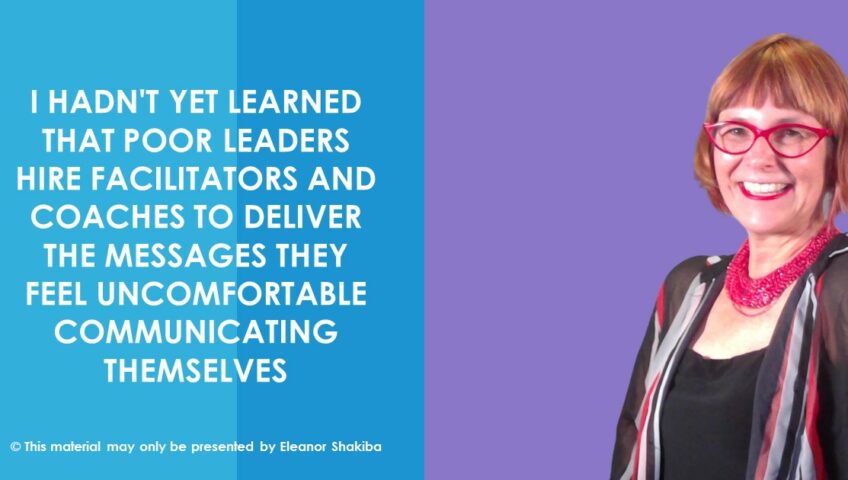Two years into my facilitation career, I was invited to run a teambuilding session for a group of researchers who ‘weren’t getting on these days’. As an enthusiastic, rookie facilitator, I took the job on. Without asking questions or probing to find out what ‘not getting on’ meant. Let alone realising that ‘these days’ had been going on for five years!
Naively, I designed an interactive, action-packed teambuilding day full of icebreakers and self-disclosure exercises. The session was an epic fail. Why? Because this was a complex situation, involving years of conflict and team fragmentation. It was not something that could be sorted out in a day. All the clues were there during my needs analysis interview. Here are some of the red flags I missed.
‘It must be done ASAP. It’s an emergency’
The request for teambuilding was made two weeks before Christmas. Obviously, no planning had been done. Indeed, the manager claimed the teambuilding exercise was ‘urgent’. I should have enquired about what that meant! That way I wouldn’t have received a nasty surprise during the session. It turned out one member of the team had threatened to make a complaint about bullying. This had been ignored by the manager and blew up on the day. What did I learn? Don’t be bullied into handling ’emergencies’ without a full investigation into what created them.
‘Make sure you tell them…’
Ah. I hadn’t yet learned that poor leaders hire facilitators and coaches to deliver the messages they feel uncomfortable communicating themselves. In my scenario, the manager provided a long list of directives to pass on to her team. Most of these targeted inappropriate behaviours (which of course, could be construed as bullying). The manager wanted me to tell the team how to behave. When I suggested it will be wiser to involve the team in setting communication norms, the manager shook her head. She even told me they’d tried that before and it didn’t work. Looking back, I can see this was a clear sign trouble was brewing.
‘Can you do it in half a day?’
This question usually comes from someone who has no idea what team building involves. That was very true in my scenario. I was told that heavy workloads and budget constraints limited the time available for the session. In my naïve eagerness to please, I failed to set boundaries. Indeed, I agreed to the half-day format and then tried to work out how to use accelerated learning to reap the desired results. It didn’t work.
‘All the conference rooms were booked…but we have a board room’
When I asked the manager to book a large, suitably ventilated room for the session, I was told this had been handled. It turned out this wasn’t true. The team was crammed into a poorly lit, overheated, stuffy boardroom. There was no room to do all my groovy accelerated learning activities – and barely room to breathe.
Fortunately, I am a much wiser facilitator these days. I now complete a full needs analysis before taking on team building gigs. Typically, this involves using positive psychology training models to design pre-session questionnaires and custom-designed group work processes. I involve team members in the needs analysis conversations and follow up. And most importantly, I listen for subtext when taking a manager’s initial brief. It’s often what is not said that reveals the true situation. By listening carefully, savvy facilitators can gather the information required to design robust interventions that will deliver positive results.
If you’d like to find out more about using positive psychology principles in your team building sessions, download Eleanor Shakiba’s free e-book, Positive Psychology Toolkit for HR and L&D Practitioners.
About the author: Eleanor Shakiba
Eleanor specialises in positive psychology and NLP. She works with HR and L&D teams create vibrant organisational cultures, by delivering training that makes a difference. Eleanor’s qualifications include degrees and diplomas in Social Anthropology, Positive Psychology, Counselling, Coaching, Adult Education and Neuro Linguistic Programming. Her passion is fostering the success of ‘positive deviants’ in the workplace. Download a copy of Eleanor’s free ebook Positive Psychology Toolkit for HR and L&D Practitioners.
